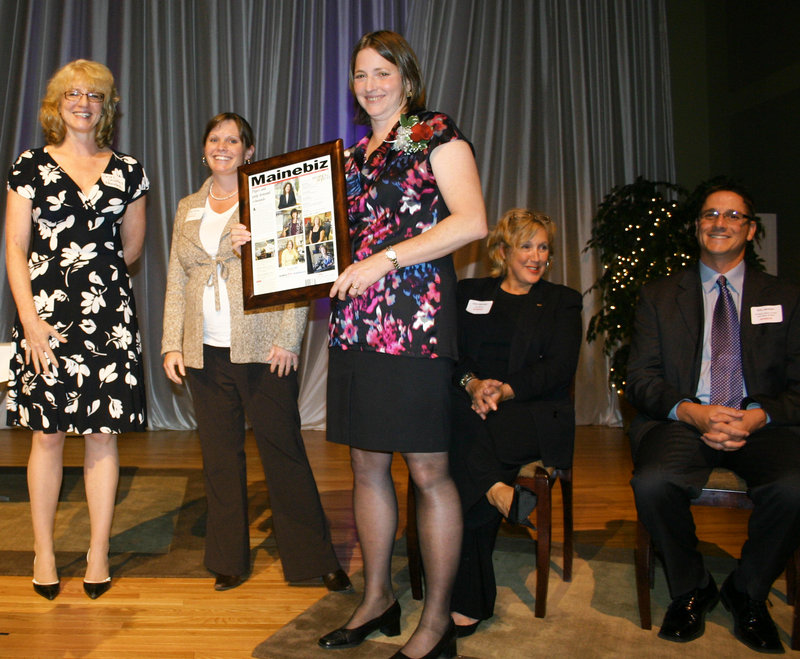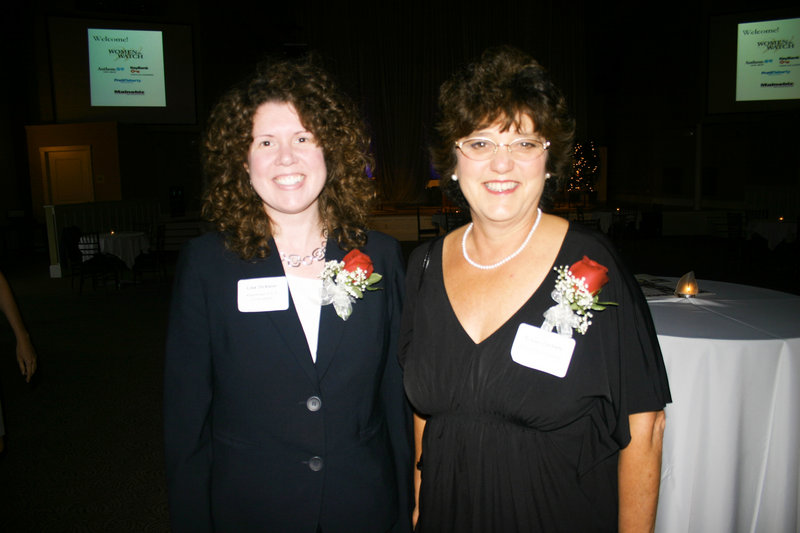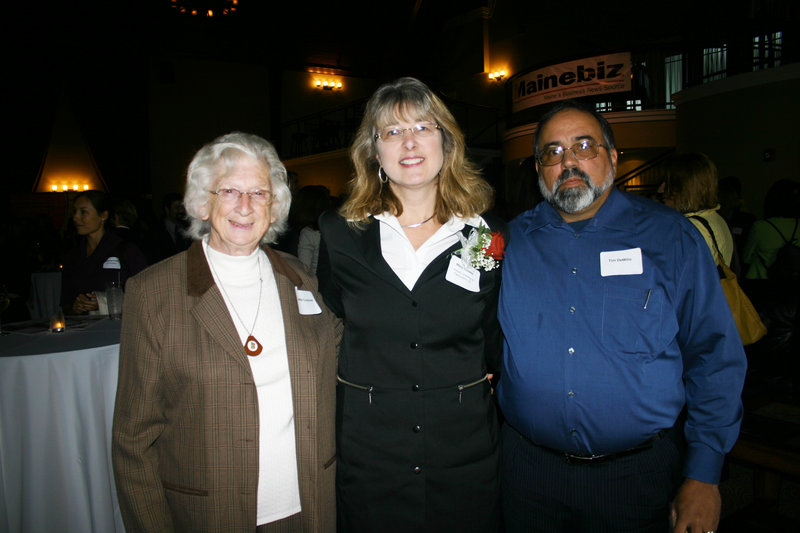The business world is changing from an exclusive men’s club to an open space where people are judged by merit, rather than gender. This is the message I heard repeatedly during Mainebiz’s Women to Watch awards ceremony held Sept. 23 inside the soaring and elegant Landing at Pine Point in Scarborough.
The party attracted 200 guests and honored five women for their leadership contributions to Maine’s economy.
Before announcing the award winners, Mainebiz publisher Donna Brassard told the crowd that the media company decided to launch the awards last year as a way to recognize that women-owned businesses are one of the fastest-growing sectors in the U.S. economy.
“We thought we could seek out women business owners who were under the radar and unwilling to toot their own horn,” Brassard said.
Since launching the awards, Mainebiz has received twice the number of nominations for this award when compared to the publication’s other recognition events, such as Business Leaders of the Year and the Next List.
At the same time, the company has seen its number of women readers increase by 40 percent since 2004, with women now making up 39 percent of the publication’s subscribers.
After her remarks, Brassard handed the mic to Mainebiz editor Carol Coultas, who, with assistance from Preti Flaherty’s Kristy Smith, Key Bank’s Jane Harmon and Anthem Blue Cross and Blue Shield’s Eric Jermyn, announced the awards.
Nan Heald, the executive director of Pine Tree Legal Assistance, won the nonprofit sector award. Lisa Dickson, regional manager and principal scientist at Kleinfelder/S E A Consultants, won the professional services sector award.
Susan Corbett, CEO of Axiom Technologies LLC, won the communications category award. Mary Howes, president of Howie’s Welding & Fabrication and managing principal of Otis Mill Ventures, won the construction and real estate sector award.
Susan MacKay, the president of Zeomatrix, won the technology sector award.
During the reception, I had a chance to chat with all the winners and I asked them to share their thoughts on being a woman in business.
When I chatted with Howes, she told me that for the past 25 years she’s worked in the construction industry, a field traditionally dominated by men. It’s been more than a decade since her gender has interfered with her working relationships, she said.
“I don’t know that being a woman is a major issue anymore,” Howes told me and added that she noticed a change in attitudes about 15 years ago. “Whether you’re a man or a woman, you need patience and a good team.”
Dickson, who works in the male-dominated world of architectural and engineering consulting where she advises companies and public sector entities on how to prepare for and anticipate the effects of climate change, praised the event.
“There’s still not a lot of role models for women,” Dickson told me. “There’s not the critical mass yet, so it’s always nice to have something like this.”
Corbett, who works in a similar environment, agreed.
“The telecom and tech industry is predominately male,” Corbett told me. “I have amazingly brilliant colleagues around the state who’ve encouraged me and cheered me on. I’ve got a mostly male crew, and I learn from them every day and I like to think they learn from me, too.”
However, it’s a different story in the charitable world.
“In a nonprofit context, women are directors of many, many nonprofits,” Heald told me. “I don’t see a glass ceiling. In the nonprofit sector, it’s important to be willing to work hard and to think creatively about how the world is changing and to stretch limited resources.”
She went on to say that “the event calls attention to the opportunities in a lot of different sectors and different parts of the state. The attention helps everyone appreciate the different ways you can achieve leadership roles.”
MacKay offered a few tips that work equally well for business women and men.
“As a woman, you need to build your network,” MacKay told me. “And don’t be afraid to ask for help. Follow your passion and know you don’t have to be an expert in everything. Don’t let your fears or inhibitions keep you from moving forward.”
Then she pointed out that “when you own your own business, you’re judged by what you deliver,” not your gender.
The guests at the party were equally enthusiastic about the awards and the changes occurring in the workplace.
“Women succeeding in Maine,” said Julie Keim of Berry, Dunn, McNeil & Parker. “You can’t get better than that.”
State Rep. Jane Knapp told me that while only 33 percent of the Maine Legislature is made up of women, that percentage is high compared to other states. She said the state’s politicians also have a very visible woman role model in Hannah Pingree, the speaker of the House.
What has Knapp learned from Pingree?
Knapp smiled sweetly and said, “you just have to politely buck the men.”
Staff Writer Avery Yale Kamila can be contacted at 791-6297 or at:
akamila@pressherald.com
Send questions/comments to the editors.




